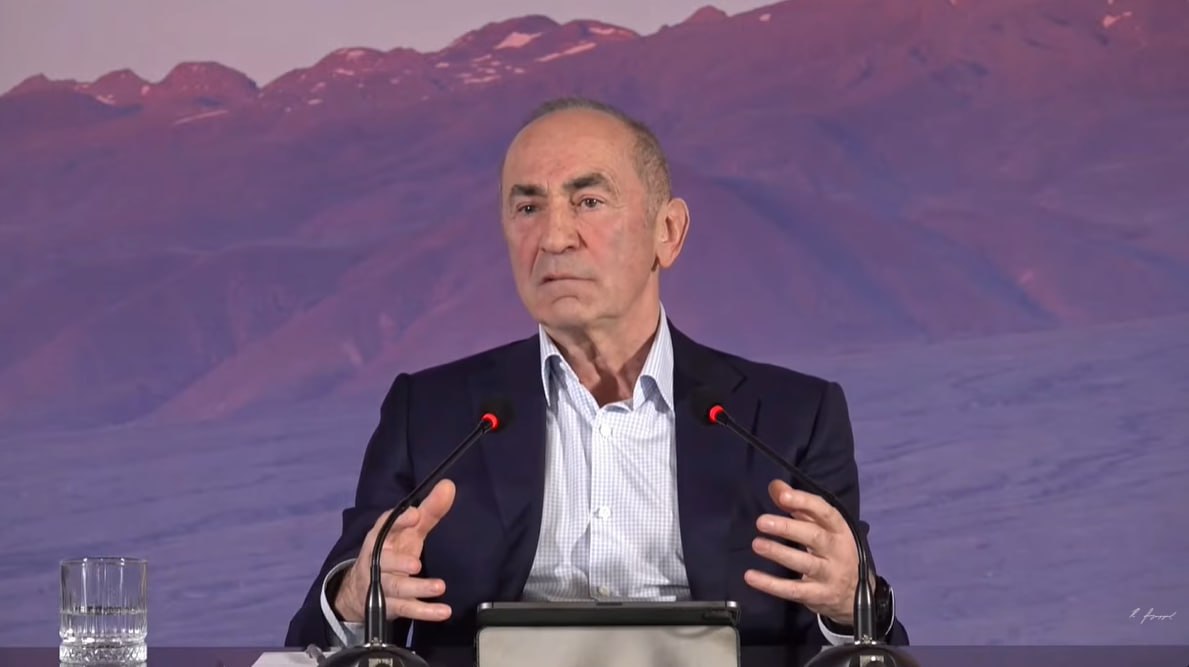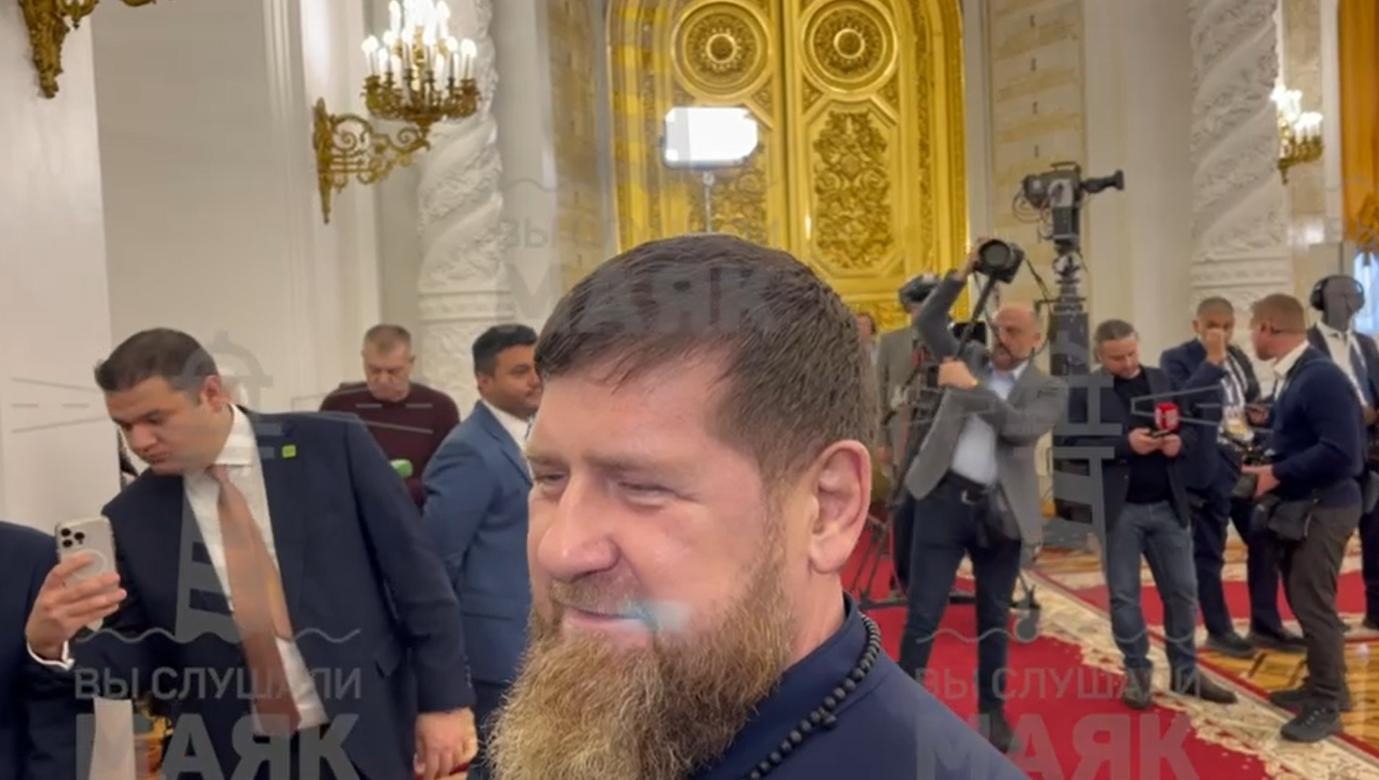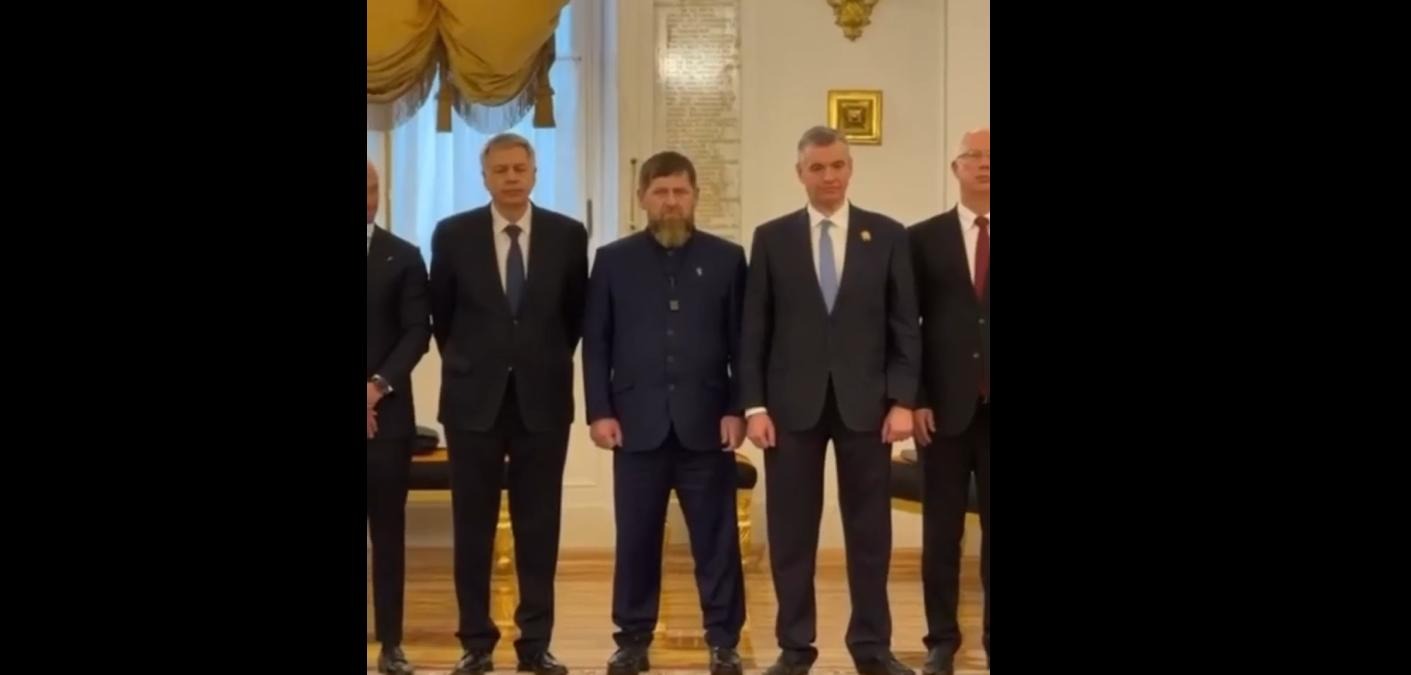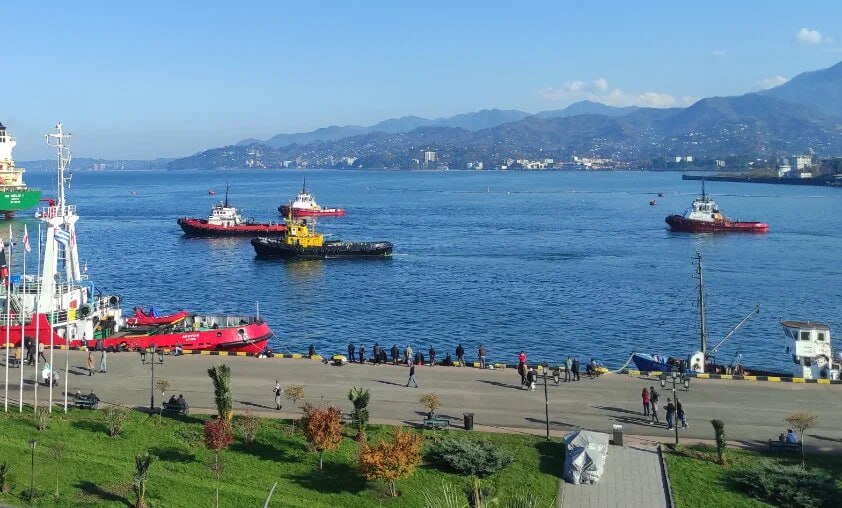Former Armenian President Robert Kocharyan warned against the current government's flippant attitude toward possible harsh responses from Moscow. He believes the authorities fail to grasp the scale of the potential impact Russia could have, including tariff revisions and export blockages.
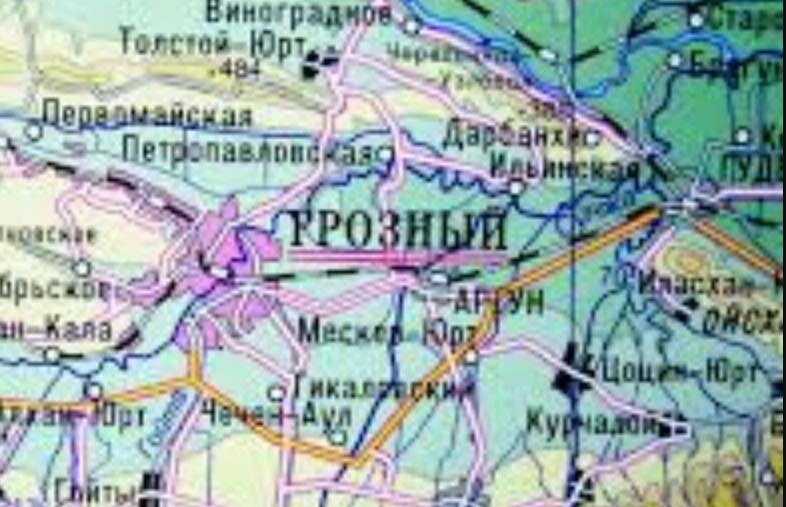
October 10, 2001
***
A protest against the illegal actions of federal forces in Chechnya ended in the village of Prigorodnoye. It was started by local residents on October 7, and the reason for its implementation was the murder of 11-year-old local resident Muslim Bisultanov.
On October 10, representatives of the locality were invited to Grozny to the Government House. They were met by the commander of the OGV (s) in the North Caucasus, Lieutenant General Vladimir Moltenskoy, representatives of the government of Chechnya, heads of law enforcement agencies and the prosecutor of the republic Vsevolod Chernov.
Vladimir Moltenskoy promised the residents of Prigorodny: “Those responsible for the death of Muslim Bisultanov will be punished.” He said that the military and civilian prosecutor's offices of Chechnya are already conducting an investigation into this fact. In turn, Vsevolod Chernov said that an investigative and operational group is investigating the incident. His speech to the villagers was harsh. In particular, he noted: “...unfortunately, among those who arrived in Chechnya to restore order, <there are those who> themselves sometimes find themselves up to their elbows in blood.”
Following the meeting, the head of the administration of the Grozny district, Shakhid Jamaldaev, said that the population of Prigorodny “believed in the commander of the OGV(s)” and agreed to open the road. Indeed, on this day, concrete blocks and carcasses of burnt cars were removed from the roadway.
***
In the village Starye Atagi, at a gathering of local residents, the head of the village administration, Vakha Gadaev, announced his intention to resign from his position. He motivated his decision by the impossibility, under the current conditions, of protecting the population from Russian military and intelligence officers. The gathering took place almost immediately after another tough “cleansing” operation, which lasted from September 26 to October 6. People have not yet recovered from the lawlessness that was happening in those days; not all captured villagers were released. Nevertheless, local residents expressed their trust in Vakha Gadaev and insisted that he continue to lead Starye Atagi.
***
In Grozny, “cleansing operations” took place in nine-story buildings in the Leninsky district on Polyarnikov, B. Khmelnitsky and M. Lermontov streets. According to information received from local residents, riot police from the Sverdlovsk region took part in them, explaining their actions by the fact that the Russian checkpoint was allegedly fired at from these houses at night.
The police behaved unceremoniously: in apartments where there were no owners, they knocked down doors, including metal ones. Two men who came out of the entrance were placed with their hands raised against the wall. When women rushed to their aid, riot police drove them away, threatening to use weapons. The men were released, but during this time the doors to their apartments were broken, and all documents were confiscated from one of them.
In the same way, in the absence of owners or witnesses, several more apartments were “checked.” Not only valuables, but even children's toys disappeared from some of them. Before leaving, the riot police threw smoke bombs into the entrances of the houses.
That same evening, residents of houses whose documents were taken or stolen contacted the Leninsky District Commandant's Office. Its employees stated that they know who carried out the “cleansing” and “cannot be responsible for others.” They advised me to file an application with the prosecutor's office. Residents of the “cleared” houses wrote it, but none of them had any hopes that the stolen property would be returned, and that the criminals would be found and punished.
***
At approximately noon, Akhmed Alikhanovich Tovbulatov, born in 1992, was wounded on the Argunsky state farm, not far from his home (20 Yuzhnaya St.). He was playing with other children when a shell fell and exploded nearby. According to information received from local residents, the shell was fired from the territory of the military unit stationed at Sheikh Mansur Airport (Northern).
Akhmed Tovbulatov received multiple shrapnel wounds to the extremities and abdominal cavity. His parents took him to the military hospital at the airport. Moscow doctors provided first aid to the boy. For further treatment, he was transported to Grozny City Hospital No. 9. Other children were not injured.
***
From October 10 to 15, another “cleanup” took place in the village of Tsotsin-Yurt. It is not known exactly which units were involved in the operation and who commanded them. The settlement was blocked on all sides by a large amount of military equipment. According to some reports, up to 500 tanks, armored personnel carriers, infantry fighting vehicles and trucks were pulled up to the village.
The “cleansing” took place according to a well-established scenario: the men were herded to the outskirts of the village, into a field, supposedly to check their passports. This procedure took two days, and the detainees spent all this time in the open air. They were tortured and beaten. Magomed Mutaev and his son were treated particularly harshly, as well as Aslambek Khadayev, who was struck several times on the head by the Russian military with a hammer. Then stitches were placed at the wound sites.
After October 15, most of the detainees managed to return home. The whereabouts of Islam Dzhambekov and the minor Mandiev remained unknown. According to eyewitnesses, the military also beat the teenager with a hammer, saying that they were breaking his ribs. Both were taken from the field in an unknown direction. Their passports were subsequently found on the road. Human Rights Center “Memorial” does not have information about the further fate of these people.
During the “cleansing” operation, eight people were killed (according to other sources – 14). All of them are not local residents, although they had relatives here. Three of them permanently lived in the village of Bachi-Yurt, four came from the Urus-Martan district, and another lived in the village of Belorechye. According to the testimony of Tsotsin-Yurt residents, those killed were engaged in oil production, refining and transportation and lived with their friends and relatives.
While trying to stand up for the beaten man, Birlant Dzhanalieva (Vakhaev’s husband) and Seda Ortsueva were wounded. The military shot at them with an under-barrel grenade launcher, and then they themselves took them to the hospital in the regional center of Kurchaloy, since none of the local residents were allowed out of the village.
Numerous cases of robbery were recorded. So, on the outskirts of Tsotsin-Yurt, the military broke into a mill and took flour out of there. Then she was transported around the village in two armored personnel carriers and sold to local residents. First, 200 rubles. per bag at a market value of 250-270 rubles, and then 100-150 rubles. Breaking into houses, the military took away valuables: carpets, video and audio equipment, women's jewelry and much more. They took food from Zulay Abdulkadyrova that was left after the destruction of a stall that belonged to her during a mortar attack on the village.
Many residents' haystacks stored for the winter were set on fire. On the outskirts of the village, the following were blown up: an empty house, containers for boiling surrogate gasoline from oil (so-called samovars) and storing heating oil in case the gas supply to the village was cut off. The military, led by officers, extorted money from oil refiners, threatening otherwise to blow up not only gasoline production plants, but also their homes. The threats were effective, and thousands and thousands of rubles migrated into the pockets of the “fighters against terrorism.” A resident of Tsotsin-Yurt who wished to remain anonymous spoke about how this happened in his yard. On the second day of the “cleansing”, about a dozen military men entered there. Pointing to an oil tank, one of them, apparently senior in rank, asked how much the owner of the house could pay to prevent it from being blown up. He was sincerely outraged when they offered him 200 rubles in response. “Russian officers are not for sale for that kind of money,” said the military man. As a result of the ensuing bargaining, he agreed to take 2,000 rubles.
During the entire “cleansing” period, local residents did not drive their domestic animals out to pasture. Nevertheless, they lost about a hundred head of livestock. Most of the livestock was eaten by the military.
Periodically, especially at night, indiscriminate shooting began on the roofs and windows of residential buildings. The military behaved rudely, used obscene language, many of them were drunk. Threats were made to the local residents: “We will “cleanse” you until spring, and then we will send everyone to Siberia,” “Leave before everyone is killed,” “They killed and will kill you,” etc.
From the book “People Live Here”, Usam Baysaev, Dmitry Grushkin, 2006.
